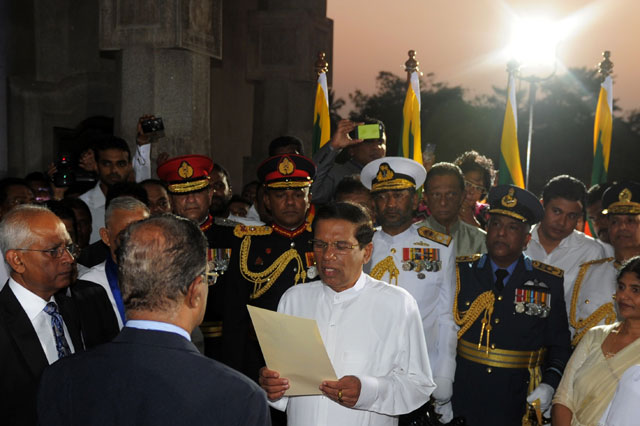 |
Sri Lanka's new president, Maithiripala Sirisena, faced calls from heads of states and international rights groups to address accountability for mass atrocities committed against the Tamil people, along side calls to demilitarise the North-East and address devolution of power, as he took office on Friday.
President Sirisena, who was endorsed by a coalition of parties, including the UNP, JVP, TNA and SLMC, won 51.28% (6,217,162 votes), beating incumbent Mahinda Rajapaksa, who won 47.58% (5,768,090 votes).
UK Prime Minister David Cameron, congratulating Sirisena, called on the the new president to "support the ongoing UN Office of the High Commission for Human Rights investigation into human rights abuses." [more]
Canada's Foreign Affairs Minister John Baird welcomed Sirisena as the new president of Sri Lanka, stating it would be an "important opportunity to resolve concerns regarding the devolution of power, accountability and genuine reconciliation". [more]
Canada's Liberal Party called on the new president "to use his powers to introduce a comprehensive devolution package that will set the country on a path towards peace and to work with the international community to achieve accountability for war crimes and crimes against humanity committed in Sri Lanka.” [more]
The UK's opposition party, Labour, said it would "urge Sri Lanka’s new government to cooperate" with the UN inquiry into mass atrocities in Sri Lanka. [more]
The Labour party leader Ed Miliband said "It is important that this new era of Sri Lankan politics is guided by the principles of freedom, justice and fairness.” [more]
UN Secretary General reiterated that the UN would "continue to support development, reconciliation, political dialogue and accountability in Sri Lanka." [more]
See our feature: Who is Maithripala Sirisena? (03 Jan 2015)
